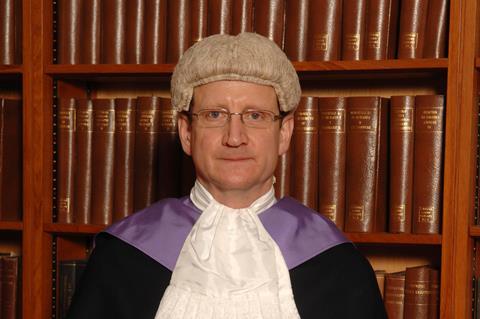A former husband and wife whose ‘very messy divorce’ led to ‘feral, unprincipled and unnecessarily expensive financial remedy proceedings’ have been lambasted by a family court judge.
Judge Stephen Wildblood QC described the dispute between the couple – both of who were found to have lied in parts of their evidence – as ‘a disgraceful example of how financial remedy proceedings should not be conducted’.
The case in relation to the former matrimonial home and the couple’s previous home ‘should have been simple’, but the wife made ‘hopeless’ claims that her ex-husband has beneficial interests in two other properties and a controlling influence in a restaurant, the judge said.
Wildblood said the dispute ultimately came down to ‘a matrimonial pot of about £730,000’, comprising the value of the two properties in dispute, but that the parties, including the various other respondents who were sued by the wife, had racked up more than £200,000 in costs.

The judge added ‘a significant proportion of [the costs] have been driven by the wife’s dogmatic pursuit of the speculative and unprincipled trust claims and by the husband’s dishonest portrayal of his position within the [restaurant] business’.
Wildblood said that the wife was likely to have to pay three of the respondents’ costs, adding: ‘I cannot see how she can avoid paying the costs of [those three respondents], subject to assessment.’
However, he made no order as to costs in relation to two respondents – a man and his company which previously ran the restaurant – due to the witness’ ‘dishonest evidence’, which he described as ‘painful’, ‘embarrassingly untruthful’ and ‘farcical’.
The judge concluded: ‘As I have made plain throughout this judgment, I consider that these proceedings are a disgraceful example of how financial remedy proceedings should not be conducted. The wife may wish to take advice about why her case was presented in this way and why so much expense has been incurred.’
He also said: ‘I intend that any applications for permission to appeal should be refused. Given the level of conflict in this case I would wish to emphasise that, as far as I am concerned, this is a final and complete judgment and I do not expect to receive further argument about matters that I have decided within it.’


























